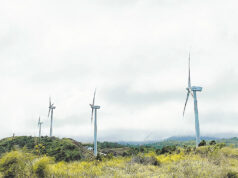ROXAS HOLDINGS, Inc. (RHI) grew its attributable profit by 18% during its fiscal year ending September, as the company managed to offset the impact of softer sugar prices through overall cost reductions.
In a disclosure to the stock exchange on Thursday, the listed sugar and ethanol producer posted a net income attributable to the parent of P119.78 million, lower than the P101 million it delivered in the same period in 2016.
The higher profit comes despite a 9% year-on-year drop in revenues to P10.95 billion, as the company implemented cost-cutting measures in the production side to reduce the impact of softer sugar prices.
“The improved relationship we have with planters and the upgrades that we implemented for the equipment and processes at our plants have paid off. We were able to reduce the overall costs of production, which also alleviated the impact of the soft prices of sugar,” RHI President and Chief Executive Officer Hubert D. Tubio said in a statement.
RHI’s sugar business accounted for bulk of the company’s revenues at 67% or P7.3 billion, lower by 7% year on year. This follows a 15% average decline in sugar prices.
During this period, the company milled 3.461 million metric tons of cane, producing 6.497 million bags of sugar weighing 50 kilograms each, which surpassed 2016’s production of 5.102 million bags.
The ethanol business segment, meanwhile, contributed P3.6 billion to the company’s revenues, 14% lower than the P4.2 billion it exhibited in 2016.
RHI attributed the decrease to delays in the enhancement of its plants during the early part of the year. The company noted it expands its production capacity by 82 million liters of ethanol per year.
“We are hopeful that the expanded capacity and improved efficiency of the group’s ethanol business unit will underpin the continued growth of the business,” RHI Chairman Pedro E. Roxas was quoted as saying in a statement.
The company noted that it also delivered a 23% uptick in consolidated EBITDA (earnings before interest, tax, depreciation, and amortization) to P1.6 billion for the year, marking its second year of sustained growth after logging a 35% growth in 2016.
CDO LIFTED
At the same time, RHI said the La Carlota City government has lifted the cease-and-desist order issued last month against its Roxol Bioenergy Corp.’s (RBC) bioethanol plant over a “foul odor.”
“The lifting of the CDO is based on the results of our inspection and verification of the mitigating measures that you have implemented and committed to implement since the time of closure and onwards,” La Carlota Mayor Luis J. Jalandoni III said in a Dec. 5 letter to Roxol Chief Operating Officer Luis O. Villa-Abrille.
However, Mr. Jalandoni said the company should still comply with the requirements under the Environmental Clearance Certificate. He added that an inspection team will inspect Roxol’s facilities every last Friday of the month, as well as conduct random inspections every two months.
Mr. Jalandoni also asked Roxol to submit a monthly report on the pollution mitigation measures it has adopted.
Shares in RHI jumped 6.58% or 29 centavos to close at P4.70 apiece at the stock exchange on Thursday. — Arra B. Francia



